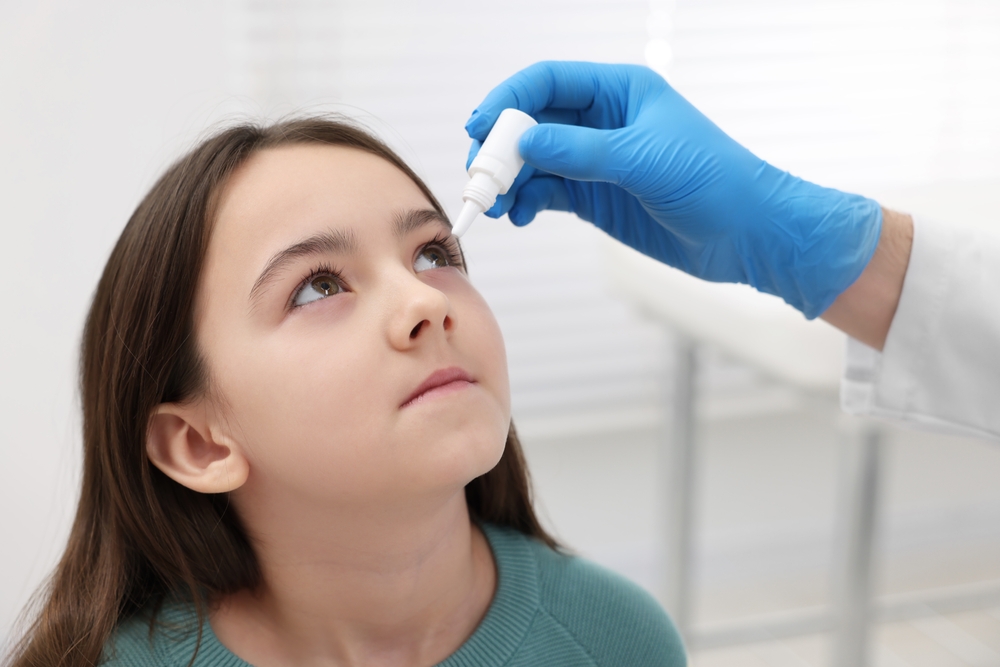
As a parent, ensuring the overall health and well-being of your child is of utmost importance. When it comes to vision, the management of myopia (nearsightedness) has become a crucial consideration. The onset of myopia typically occurs during the early school years, and it can progress rapidly if left unchecked. Understanding the factors that contribute to the development and progression of myopia is crucial in determining the most effective management approach for your child.
Risks of Untreated Myopia in Children
Untreated myopia in children can have far-reaching consequences, both in the short and long term. As the condition progresses, it can lead to increased risks of various eye-related complications, such as:
Increased Risk of Eye Diseases: Myopia is associated with a higher likelihood of developing conditions like retinal detachment, glaucoma, cataracts, and myopic macular degeneration later in life.
Reduced Visual Acuity: Uncorrected or poorly managed myopia can result in a significant decrease in visual acuity, making it more challenging for children to perform everyday tasks, such as reading, writing, and participating in sports.
Impaired Academic Performance: Reduced visual acuity can negatively impact a child's academic performance, as they may struggle to see the board, read textbooks, or focus on their work.
The Importance of Myopia Management
Given the potential risks associated with untreated myopia, it is crucial to implement effective myopia management strategies. Proactive intervention can help slow the progression of the condition, reduce the risk of associated eye health issues, and improve a child's overall visual function and quality of life.
Myopia management strategies can include a combination of optical interventions, such as corrective lenses or contact lenses, and pharmacological treatments, like atropine eye drops. The goal is to find the most appropriate approach that addresses your child's specific needs and ensures the best possible visual outcomes.
Comparing Atropine Eye Drops to Other Myopia Management Strategies
One of the most widely studied and effective myopia management strategies is the use of atropine eye drops. Atropine is a medication that works by temporarily relaxing the eye's focusing mechanism, which can help slow the progression of myopia. Atropine eye drops are typically administered once daily, making them a relatively convenient option for parents and children. The effects of atropine eye drops are reversible, meaning that once the treatment is discontinued, the eye's focusing mechanism will return to normal.
However, atropine eye drops are not the only myopia management strategy available. Other options include:
Orthokeratology (Ortho-K): This involves the use of specialized contact lenses worn overnight to temporarily reshape the cornea, effectively correcting refractive errors and slowing myopia progression.
Dual Focus Soft Contact Lenses: These lenses are designed to provide clear vision at multiple distances, which can help reduce the eye's need to focus and potentially slow myopia progression.
What Sets Ortho-K Apart for Myopia Management
One myopia management strategy that has gained significant attention in recent years is Orthokeratology, or Ortho-K. This approach involves the use of specially designed lenses that are worn overnight to temporarily reshape the cornea, the clear front part of the eye. The primary benefits of Ortho-K for myopia management include:
Effective Myopia Control: Studies have shown that Ortho-K can effectively slow the progression of myopia in children, with some research suggesting a reduction in myopia progression of 50% compared to traditional eyeglasses or contact lenses.
Improved Visual Acuity: Ortho-K lenses can provide clear, crisp vision during the day without the need for daytime corrective lenses, allowing children to participate in various activities without the hassle of glasses or contacts.
Reversible Effects: Like atropine eye drops, the effects of Ortho-K are reversible, meaning that once the treatment is discontinued, the eye's natural shape will gradually return to its original state.
Identifying Which Myopia Management Strategy is Right for Your Child
To determine the most appropriate myopia management strategy for your child, it is essential to schedule a comprehensive eye examination. During this examination, the optometrist will assess your child's current vision, the degree of myopia, and any other underlying eye health concerns.
Based on this evaluation, your doctor will recommend the most suitable myopia management approach, considering factors such as your child's age, the rate of myopia progression, and their individual needs and preferences.
Schedule Your Child’s Eye Exam with Bonds Eye Care Today
Addressing myopia in children is a complex and multifaceted challenge, but with the right approach, you can help your child manage their condition and maintain optimal visual function. By understanding the risks of untreated myopia, exploring the various myopia management strategies available, and working closely with your optometrist, you can make an informed decision that sets your child up for success.
Schedule a comprehensive eye exam with Bonds Eye Care to discuss the most suitable myopia management strategy for your child. Visit our office in Downingtown, Pennsylvania, or call (610) 269-3177 to book an appointment today.





